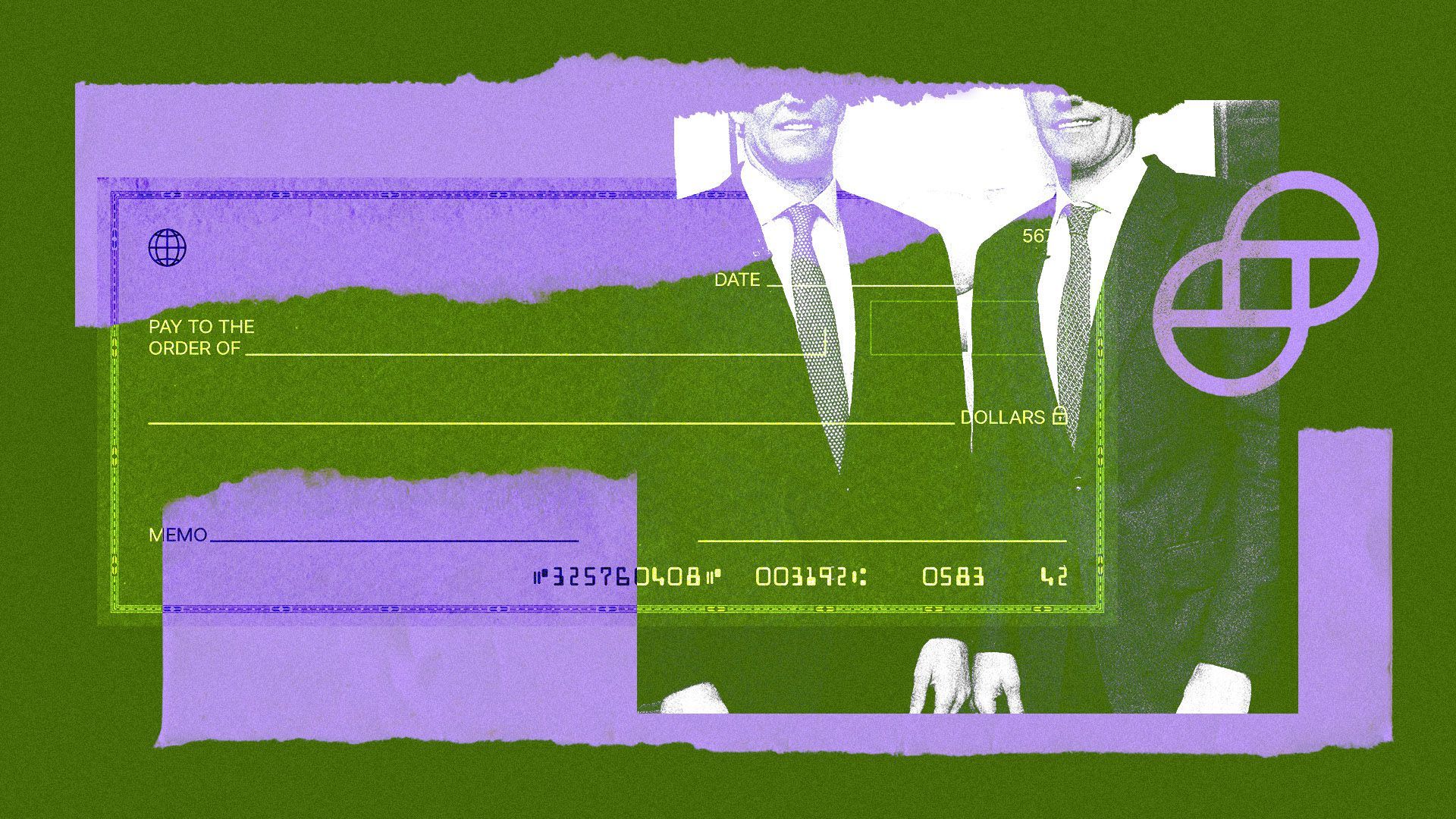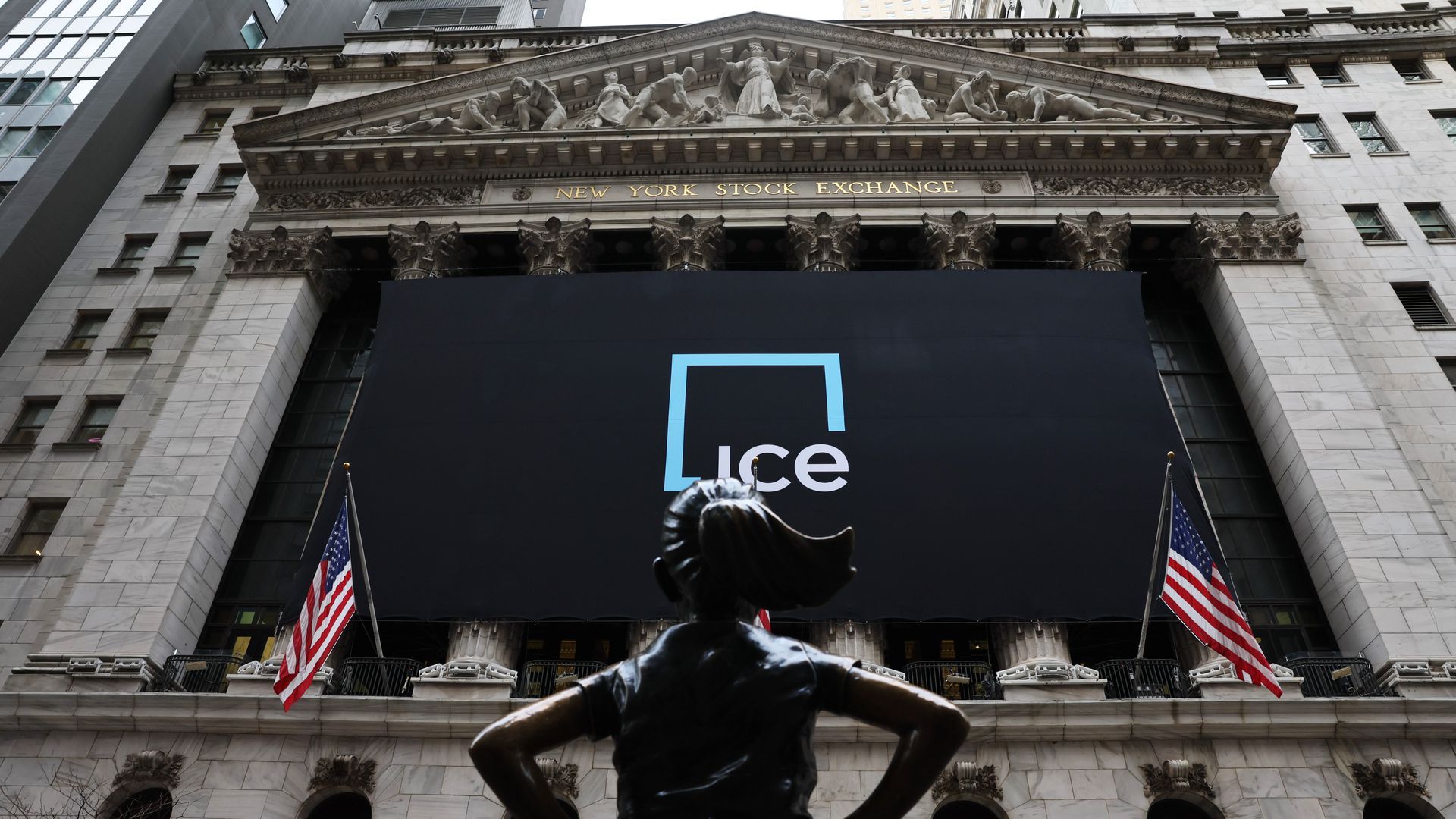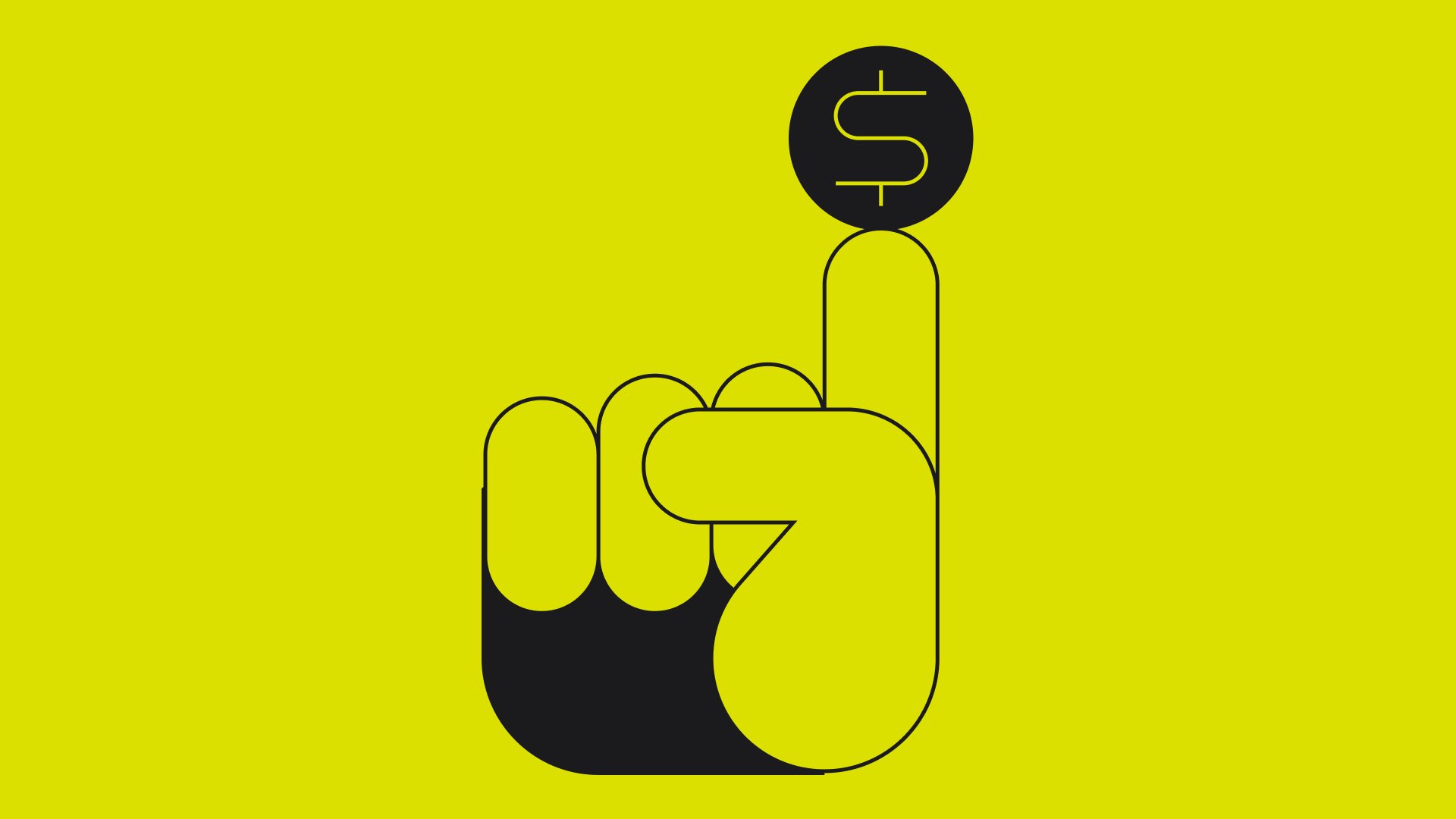| | | | | | | Presented By Advisor.com | | | | Axios Markets | | By Emily Peck and Matt Phillips · Jan 30, 2023 | | Monday. Emily here ... Today, Matt and I take a look at Gemini Earn, the troubled crypto accounts where an estimated $900 million of customer money is currently stranded. - Meanwhile, we're still reporting on the company. If any current or former Gemini employees have anything they'd like to share: emily.peck@axios.com and matt.phillips@axios.com. We're also on Signal.
Today's newsletter is 1,215 words, 5 minutes. | | | | | | 1 big thing: Gemini and the FDIC |  | | | Illustration: Annelise Capossela/Axios | | | | As the cryptocurrency market imploded last year, Gemini Earn customers repeatedly asked the company if their assets were safe. Some of Gemini's responses, reviewed by Axios, emphasized connections to the Federal Deposit Insurance Corporation. Why it matters: Customers say that led them to believe their accounts were insured by the government agency. They weren't. - It was a costly bit of confusion. Some 340,000 Earn customers now have had almost $1 billion worth of assets frozen on the platform. It's unclear if they'll ever get it back.
- Gemini's partner, a crypto lender called Genesis, is now bankrupt. And both companies are facing Securities and Exchange Commission charges for offering unregistered securities through Earn.
- The New York State agency that regulates Gemini is investigating the firm, Axios has learned. An agency spokesperson said they could not comment on ongoing investigations.
Catch up quick: Gemini's Earn product resembled a savings account. Investors put in funds — either their own cryptocurrency or they paid dollars for Gemini's so-called stablecoin, GUSD — and were told they'd make as much as 8% APY. The big picture: Federal law prohibits anyone from "implying that an uninsured product is FDIC–insured or from knowingly misrepresenting the extent and manner of deposit insurance." - In correspondence with Earn customers reviewed by Axios, Gemini's discussion of FDIC insurance appeared to reference the firm's deposits at outside banks — not its own products. But customers said they did not appreciate that distinction. Plus, the claims concern the safety of GUSD — but not the yield-bearing Earn product itself.
- Current and former FDIC officials told Axios that while the FDIC language Gemini used is misleading, it's unclear whether it actually violates the law.
What they're saying: "Is it skeezy? For sure," said Todd Phillips, a former senior attorney at the FDIC, of Gemini's communications to customers invoking the agency. "Is it illegal? I don't know. I can't really say. " - Dennis Kelleher, the president of Better Markets, a nonprofit that advocates for tighter regulation, says he believes Gemini's intention was to mislead. "Everybody knows the value in terms of investor comfort and confidence in something that is FDIC insured."
- The goal in using language like this appears to be to "get legitimization" and provide "false comfort" to people to convince them to keep their money with the company, he said.
Be smart: Current and former FDIC officials say the inclusion of the word "knowingly" in a provision of the law that makes it illegal to misrepresent the existence of deposit insurance makes enforcement difficult. - It requires proving that whoever made the statements intended to misrepresent the status or security of the funds.
- That means that the kinds of statements that crypto firms like Gemini made to worried customers about FDIC insurance likely fall into a legal gray area.
For the record: In response to an Axios inquiry, Gemini declined to comment. - And in a response to a lawsuit from Earn customers, also filed on Jan. 10, Gemini emphasizes that they should have known the risks. "[I]n enrolling in the Gemini Earn program, Plaintiffs acknowledged that ... they faced the risk of "TOTAL LOSS."
|     | | | | | | 2. "Your funds remain secure" |  | | | Photo Illustration: Natalie Peeples/Axios. Photo: Astrid Stawiarz/Getty Images | | | | Manohar Venkataraman, an Earn investor and IT consultant in New York, emailed Gemini customer service last summer to ask about the safety of his GUSD holdings. "I've seen references to FDIC insured," he wrote. - The reply he got two days later appears to be a standard response by Gemini customer service: "All fiat currency held by Gemini to redeem your GUSD is held by our partner financial institutions in a secure account and is eligible for FDIC insurance."
- At the time, Venkataraman was reassured. "It seemed like they were saying they'd make good on all the money." But now? "It's pretty obviously misleading," said Venkataraman, who has about $40,000 worth of frozen GUSD with Gemini Earn. "I thought they were as good as dollars."
Another customer service email in response to a 24-year-old Gemini Earn investor who was worried about his GUSD reads: "GUSD reserves are held by Gemini in accounts at U.S. FDIC-insured bank accounts and money market funds holding short-term treasury bonds." - "The cash portion of these GUSD reserves may be eligible for FDIC 'pass-through' insurance for Gemini customers, in the event of the failure of a bank holding the U.S. dollar deposit portion of the GUSD reserves."
- "So responding to your question, the risk of holding GUSD is minimum, and in the unlikely event of any trouble/issue, your funds remain secure" [emphasis ours].
- The investor works in investment banking and asked for anonymity because he's embarrassed to have fallen for this. He says the emails "reassured" him at the time.
Ian McCray, a truck driver in Syracuse with about $17,000 of savings in Gemini Earn, said he thought Gemini Earn was FDIC-insured when he started investing in November 2021. He saw the term all over Gemini's website, he said, and "it made it seem like it was safe, literally." The big picture: Crypto was supposed to be an alternative to the traditional financial system — but leaning on one of the iconic regulatory bedrocks of banking helped Gemini gain customer trust. - But not all customers we heard from believed their funds were FDIC-backed. Some simply had faith in Gemini's owners, Cameron and Tyler Winklevoss, the twins made famous by the film "The Social Network."
- Their high profile — and some customers' perception that the twins knew what it felt like to be treated unfairly — meant it was less likely the company was a scam, investors said.
- Others were reassured because Gemini was regulated by the state of New York; something the company touted in advertisements on billboards, taxis and the New York Times.
The bottom line: Earn investors are devastated. A lot of these customers are looking for someone to blame in all this — the marketing, the belief in crypto more broadly, the regulators. Many are looking inward and saying they should've known better. Read the full story |     | | | | | | 3. Catch up quick | | 🚀 AI rockets ahead in vacuum of U.S. regulation. (Axios) 🇩🇪 German economy unexpectedly shrinks in Q4. (Reuters) 🚗 Renault and Nissan shake up alliance. (FT) |     | | | | | | A message from Advisor.com | | Never make another financial decision alone | | |  | | | | We all have that sinking feeling we're missing out on opportunities with our money. Advisor.com offers expert financial planning and investing for a flat annual fee. Whether you have $0 or $1M in investments, you pay one rate for the same white glove service. Take our quiz to see if you need an advisor. | | | | | | 4. 📈 January's lookin' good |  | | | Things may be looking up. Photo: Michael M. Santiago/Getty Images | | | | The S&P 500 is having its second-best start since the turn of the century, Matt writes. - With two trading days left in January, the S&P is up 6%, and pushing toward levels not seen since late last summer.
Why it matters: It's a relief to investors who were battered by last year's 19.4% clobbering for the blue-chip index. - It's the strongest January in 24 years, with the exception of 2019.
- Performance in January 2019 was juiced by the Fed's decision to suddenly shift from hiking to cutting interest rates.
Between the lines: A similar dynamic appears to be driving this year's surge out of the gates. - Tech-centric growth stocks — the kinds of shares that rise when interest rates fall — soared this month: The Nasdaq is up 11%.
- Tesla, the poster child for such shares, is up more than 40% over the month.
Yes, but: While the tech surge suggests there's a growing expectation that the Fed eases up on rate hikes, it's not a sure thing. What to watch: The Fed is due to make its next interest rate announcement Wednesday. If the central bank sounds hawkish, the tech surge could screech to a halt. |     | | | | | | A message from Advisor.com | | Never make another financial decision alone | | |  | | | | We all have that sinking feeling we're missing out on opportunities with our money. Advisor.com offers expert financial planning and investing for a flat annual fee. Whether you have $0 or $1M in investments, you pay one rate for the same white glove service. Take our quiz to see if you need an advisor. | | | | Today's Axios Markets was edited by Kate Marino and copy edited by Mickey Meece. |  | | Why stop here? Let's go Pro. | | | | | | Axios thanks our partners for supporting our newsletters.
Sponsorship has no influence on editorial content. Axios, 3100 Clarendon Blvd, Arlington VA 22201 | | | You received this email because you signed up for newsletters from Axios.
To stop receiving this newsletter, unsubscribe or manage your email preferences. | | | Was this email forwarded to you?
Sign up now to get Axios in your inbox. | | | | Follow Axios on social media:    | | | | | |








No comments:
Post a Comment